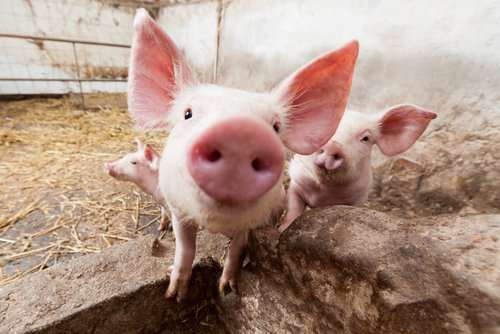Discovery was made by Paulo Arruda and other scientists
By Diego Flammini
Assistant Editor, North American Content
Farms.com
A team of scientists, led by a veterinary researcher at Iowa State University, has discovered a virus in the central nervous systems of young pigs with symptoms similar to polio.
Paulo Arruda led other researchers from the University of Minnesota and Kansas State University in studying 11-week old pigs that, as a result of an unknown weakness, were unable to walk.

The team discovered microscopic lesions on the pigs’ central nervous systems. The lesions contained a sapelovirus. This virus is common in pigs, but the strain found in this particular research was different than the strain typically found.
“We’re collecting evidence, sort of like in a forensic investigation,” Arruda said in a release. “But we still have a lot of questions that need to be answered about this virus.”
Arruda said the researchers aren’t sure the virus is responsible for the lesions and a lack of scientific evidence makes it difficult to understand how widely it can spread.
Arruda also said hog farms dealing with the disease could lose up to two per cent of their livestock, but there’s no evidence the virus makes pork unsafe for human consumption.